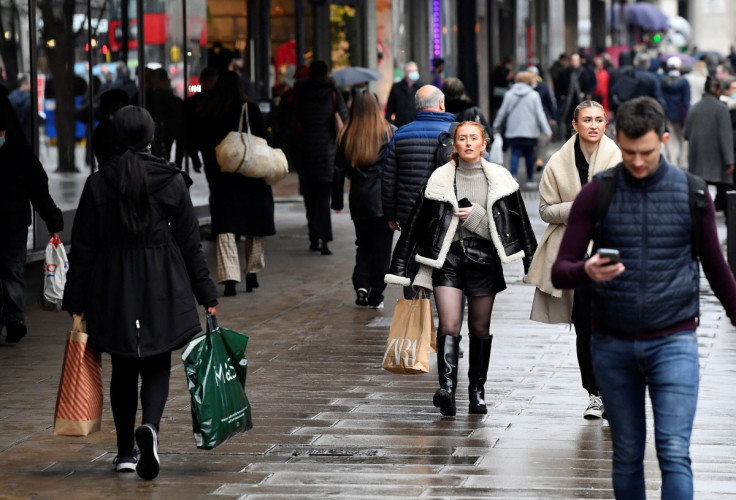UK Shoppers Cut Their Spending, Government Borrows More Than Expected

British shoppers reined in their spending more sharply than expected in September as they felt the hit from rising prices, and a one-off bank holiday to mark the funeral of Queen Elizabeth also weighed on retail sales figures for the month.
Separate official data showed Britain's borrowing grew by more than expected, underscoring the challenge facing new finance minister Jeremy Hunt and whoever succeeds Liz Truss as prime minister next week.
Sales volumes fell by 1.4% from August - almost three times the 0.5% fall in a Reuters poll of economists.
Over the three months to September, sales were down 2.0%, the biggest fall since the first three months to September 2021.
Sterling fell against the U.S. dollar after the data was published, dropping from just over $1.12 to as low at $1.175.
Consumers have been reining in their spending with inflation hitting 10%, adding to the strains on the economy which is expected to go into recession soon.
Households also face the prospect of a tighter squeeze on their spending power in 2023 after Hunt scrapped tax cuts previously planned by Truss. She announced on Thursday that she would resign, starting the process of finding a new prime minister by next week.
A survey published overnight showed consumer confidence remained close to a record low as households responded to the combination of high inflation and Britain's chaotic politics.
The ONS said it was unable to estimate the extent of the impact of the queen's funeral on the retail sales figures.
"The decline in sales volumes in most major categories suggests that high inflation is still weighing heavily on spending," Ruth Gregory, an economist with Capital Economics, a consultancy, said.
Several retailers, including Britain's biggest supermarket group Tesco and online fashion seller ASOS, have warned about the profit outlook this month as they face higher energy and staff costs, and a weak pound.
In annual terms, total sales volumes were down 6.9%, the ONS said.
Separate data published by the ONS showed Britain borrowed 20.01 billion pounds ($22.37 billion) in September, more than the 17.1 billion pounds expected in the Reuters poll of economists.
So far in the 2022/23 financial year, which began in April, borrowing stands at 72.5 billion pounds, down about 26% from the same period last year but almost 36 billion pounds more than in the April-September period of 2019, before the pandemic.
Carl Emmerson, deputy director of the Institute for Fiscal Studies think-tank, said the deficit was in line with forecasts by Britain's official budget watchdog but would widen again soon as the government's expensive energy price subsidies begin.
He said borrowing this year could be almost 200 billion pounds, double the Office for Budget Responsibility's forecast.
Hunt will try to show investors that he can repair the public finances when he delivers a budget plan on Oct. 31 which is expected to include spending cuts and possibly further tax increases.
($1 = 0.8945 pounds)
© Copyright Thomson Reuters 2025. All rights reserved.





















